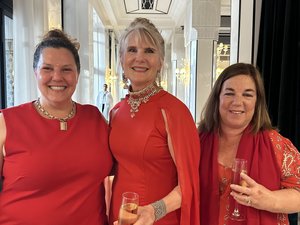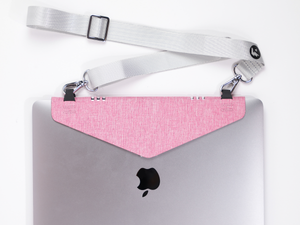
The agriculture-technology ecosystem is beginning to show signs of scaling up.
A study of the industry by PitchBook found that ag-tech investment continues to grow at a rapid clip. In 2018, more than $1.6 billion was invested across approximately 200 deals in ag-tech, with median deal sizes averaging around $10 million for late-stage companies.
PitchBook also found that, by and large, just about every segment of ag-tech experienced upward trends within the last year for both venture deal value and volume.
But does Minnesota have what it takes to become a major hub for ag-tech in the Midwest?
To learn more about the state's potential for investment and innovation, Minne Inno spoke with Chris Abbott, co-leader of the venture arm of Continental Grain Company.
CGC got its start more than 200 years ago as a grain trading business. Today, it's a holding company that supports fast-growing companies around the world. CGC Ventures backs businesses seeking Series B funding and beyond.
Richfield-based Sentera is among CGC's portfolio companies. The company makes drones, sensors and a software application that lets users tag and share images collected by drones. Sentera has accumulated more than $22.5 million in venture capital funding, making it one of the top-funded ag-tech startups in Minnesota.
Abbott, along with fellow ag-tech supporters and investors, will be participating in the second annual Food, Ag, Ideas Week next month.
This conversation has been edited for length and clarity.
Minne Inno: Why does CGC, a New York-based company, have a presence in Minnesota?
Chris Abbott: We strongly believe that innovation in food and ag is happening in the Midwest. There's a little in North Carolina, and some innovation in San Francisco, but for the most part, the main hub is in the Midwest. If we're going to invest in those markets, we need to have someone there. I split my time equally between here and New York, but I also spend time all over the U.S. meeting with entrepreneurs, other investors, operators and farmers.
MI: Where do you see most innovation happening in the Midwest?
CA: Mainly, it's places like Fargo, Minneapolis, Ames, Chicago and Kansas City. But overall, I think Midwest cities need to do a better job of banding together and helping each other out. We need to improve how we foster innovation locally. Fargo and Ames, for example, are smaller markets with less capital, but what they do really well are domain expertise and university talent.
"If Minnesota doesn't scale and do it quickly, it's at risk of being displaced."
MI: What lessons could Minnesota learn from Fargo and Ames? What are their strengths?
CA: A lot of it starts with the universities. Oftentimes, it's where the smartest people come from. In Ames, Iowa State has done an amazing job at corralling public and private dollars to create businesses. They also cross-pollinate agriculture students and businesses people. If schools aren't doing that, it's a wasted opportunity. But you need risk capital to take a chance on entrepreneurs, and those cities don't have that yet.
MI: Does Minnesota have the potential to become a major hub for food and ag-tech?
CA: Absolutely. But everything that's happening here now needs to happen at a larger scale. If things don't change, the momentum will shift and these growing companies will go somewhere else. If Minnesota doesn't scale and do it quickly, it's at risk of being displaced.
MI: Do you think things like Food, Ag, Ideas Week help boost the city's profile as a center for ag-tech innovation?
CA: It's the best way to solve the problem. It's important to talk about investing and some of the challenges that food and ag entrepreneurs are facing. We're big advocates for Grow North and Ideas Week. This year, we're sponsoring a handful of the events. I think everybody should support what they're doing.
MI: Why should the greater tech and startup community care about food and agriculture innovation?
CA: I believe two of the biggest issues on the planet right now are sustainability and human health. To address these issues, we need to address water quality, the production of clean food and the removal of synthetics. You can remove cars off the road and it'll remove some pollution, but you can't look holistically at big issues like that without considering how ag-tech factors in. We need to be smarter about how we produce food. Driving tech in the food and ag value chain can help with that.
MI: Where do you see the ag-tech industry heading? What issues should people be paying attention to?
CA: I think people underappreciate the power that consumer and regulatory pressure has in changing the value chain. People are moving away from big brands like Kraft. The regulatory environment is under a lot of pressure to reduce the use of synthetic chemistry. The next five years will be critical in driving a massive amount of change. I don't think some of these companies realize that the cows have left the barn. We're not turning back – we're not going back to crappier food. As soon as they realize that, the better off they'll be. You can only fight change for so long.








